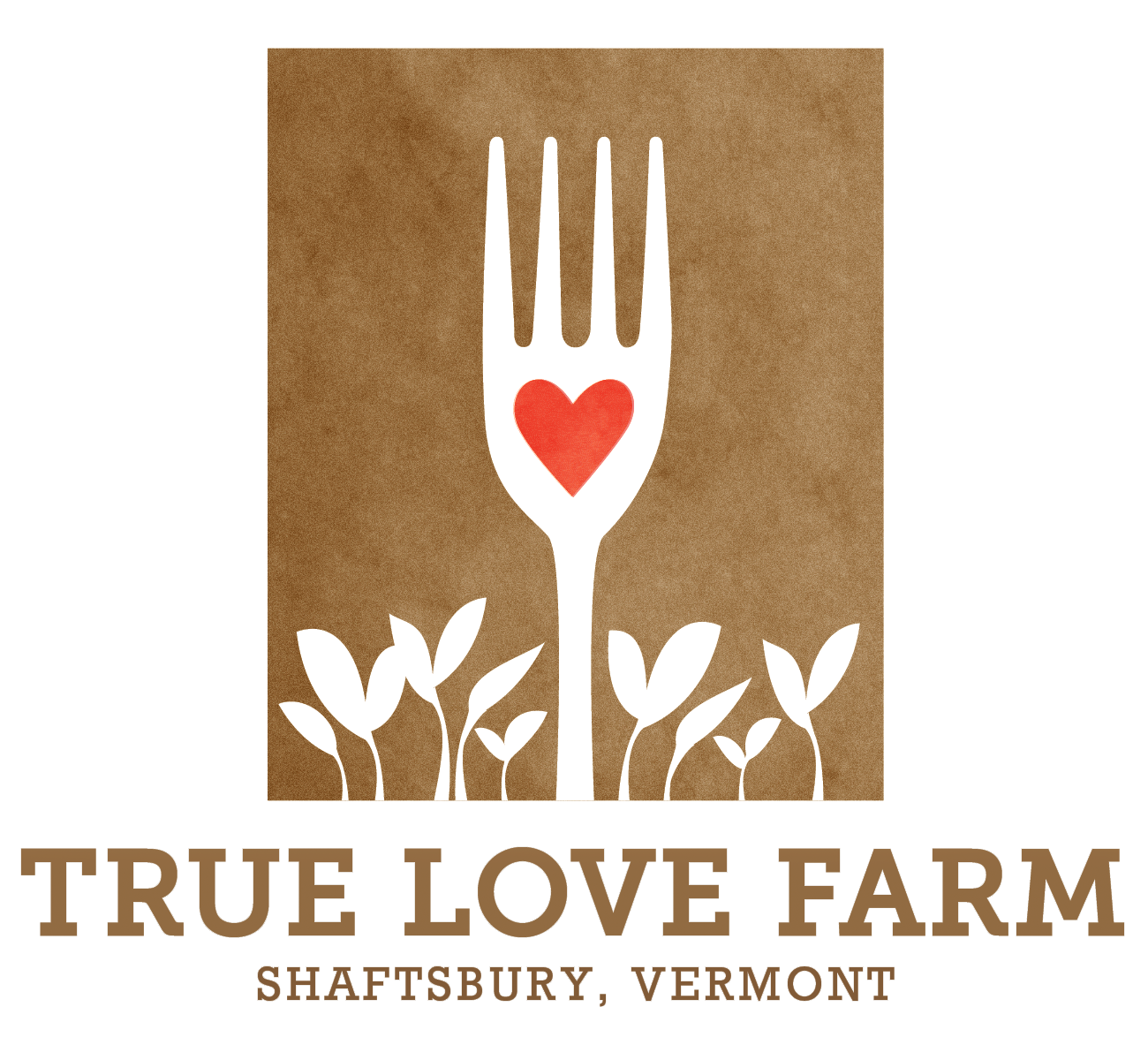
Our Growing Practices
If you care about growing practices (and we do, enormously) we encourage you to get to know your farmer.
Your farmer’s integrity is your best assurance of a safe and quality product. All farming methods have advantages, drawbacks, limitations, and challenges. Organic. Regenerative. Conventional. Sustainable. Bio-dynamic. Certified Organic. All Natural. Local. No till. Low till. Certified Naturally Grown. Bio-rational. Hydroponic. Aeroponic. Permaculture. All of these are a kind of dance, building a creative imbalance with nature.
Here at the True Love Farm, we prioritize a vibrant ecosystem and superior flavor.
Happily, this correlates with increased nutrient density. The second priority is beauty, and after that productivity. This may seem like a flawed business model, but it’s not about the bottom line. We want our friends and neighbors to eat great food and we want to live our lives in a way that isn't hurting anybody.
The Farm is not Certified Organic by choice.
We completely agree with those principles, and mostly agree with its regulations, although we feel the U.S. Organic standard is not as rigorous and soil-focused as it should be. Also, we hate paperwork, and because we sell all of our produce within a 35-mile radius of the farm, folks know us. All inputs here (fertilizers, pesticides, adjuvants, amendments, etcetera) are organically approved materials, bearing the OMRI (Organic Materials Research Institute) imprint. We believe that a robust micro biome and living soils are the key to sustainable growing, and constantly endeavor and experiment to improve.
Beyond what comprises the Organic standard, there are many other ecosystem management choices a farm makes. That’s where we think we really shine.
For example, we run our greenhouse on wood versus using fossil fuels to heat the early season transplants that make our enterprise viable. Yes it is more work but we think it’s important. We also choose to NOT run early season heated tomato houses (which use giant propane furnaces and chug through the fuel) as it is just too costly to the environment. I can wait a few extra weeks for tomatoes. We also work to minimize plastics but acknowledge that there is tons in use here.
A Word on Food Safety: The farm is VT CAPS certified (Vermont Community Accreditation for Produce Safety). These are a series of food safety protocols. We take great care with post harvest cleaning, sanitation, and refrigeration.

